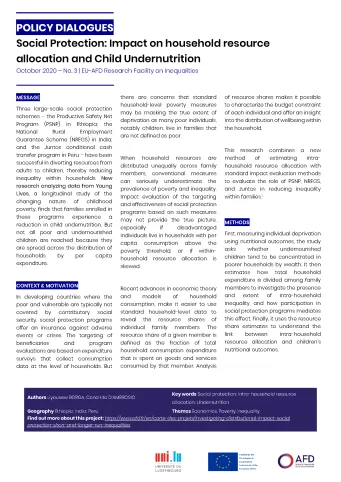Share the page
Social Protection: Impact on household resource allocation and Child Undernutrition
Published on

Three large-scale social protection schemes – the Productive Safety Net Program (PSNP) in Ethiopia; the National Rural Employment Guarantee Scheme (NREGS) in India; and the Juntos conditional cash transfer program in Peru – have been successful in diverting resources from adults to children, thereby reducing inequality within households. New research analyzing data from Young Lives, a longitudinal study of the changing nature of childhood poverty, finds that families enrolled in these programs experience a reduction in child undernutrition. But not all poor and undernourished children are reached because they are spread across the distribution of households by per capita expenditure.
Useful Information
-
Authors
-
Liyousew BORGA, Conchita D’AMBROSIO
-
Coordinators
-
Edition
-
3
-
Number of pages
-
2
-
ISSN
-
In process
-
Collection
-
Policy Dialogues
